Sustainable Food Systems
Adequate nutrition is essential for health and well-being. Every person on this planet has the right to safe, sufficient and nutritious food and to be free from hunger. Yet, undernourished is rampant. Even when food is available and accessible, the nutrient quality of the food is often poor and people’s diets are often inadequate, monotonous and unbalanced. The result is a high prevalence of various forms of malnutrition that co-exist within most countries. Stunting and wasting are underlying causes of death in children under five, micronutrient deficiencies in particular vitamin A, iodine, iron and zinc affect over two billion people, and overweight and obesity have been increasing rapidly worldwide, affecting all population groups.
Aware and concerned about these facts, 164 Members of FAO and WHO attended the Second International Conference on Nutrition (ICN2), co-organized by FAO and WHO, in Rome, in November 2014. They were joined by 164 civil society and private sector organizations as well as other UN and intergovernmental organizations.
According to the High Level Panel of Experts on Food Security and Nutrition, a food system “gathers all the elements (environment, people, inputs, processes, infrastructures, instructions, etc.) and activities that relate to the production, processing, distribution, preparation and consumption of food, and the outputs of these activities, including socio-economic and environmental outcomes.
At the Second International Conference on Nutrition (ICN2), it was universally acknowledged that current food systems are being increasingly challenged to provide adequate, safe, diversified and nutritious food for all that contribute to healthy diets. The Conference adopted the Rome Declaration on Nutrition and its Framework for Action, committing to “enhance sustainable food systems by developing coherent public policies from production to consumption across relevant sectors to provide year-round access to food that meets people’s nutrition needs and promote safe and diversified healthy diet.”
One year later, in September 2015, at the historical global summit, the Sustainable Development Goals (SDGs) were adopted to guide global development through 2030 while ensuring that no one would be left behind. The SDG Goal “to end hunger, achieve food security and improved nutrition, and promote sustainable agriculture” as well as many other SDG goals reiterate and reinforce the commitments made at ICN2. Further building momentum for nutrition, the Decade of Action on Nutrition (2016 to 2025) was proclaimed by the United Nations General Assembly in April 2016, following the recommendation of the ICN2. Its Action Areas focuses on food systems for healthy, sustainable diets. Find out more about the Nutrition Decade here.
The Decade of Action creates an enabling political environment for turning commitments made into action but countries need further technical support in order to do that. FAO and WHO propose to hold an International Symposium on 1-2 December, 2016 to focus mainly on illustrating solutions to implement food systems related ICN2 Framework for Action recommendations. Participants will include government officials with policy-making and programme-design mandates coming from Health and Agriculture ministries.
Latest content relevant to Sustainable Food Systems

Launch event: HLPE Report on Sustainable Forestry for Food Security and Nutrition
27/06/2017 - 27 June, FAO HQ, Rome At its 41st session in October 2014, the CFS requested the HLPE to prepare a study on Sustainable Forestry for Food Security and Nutrition, to feed into the CFS Plenary session [...]

Policy Guidance Series - Strengthening Sector Policies for Better Food Security and Nutrition Results
01/06/2017 - Achieving the food security, nutrition and sustainable agriculture goals by 2030 requires a coordinated set of actions on a number of fronts: coherent policies and programmes, an increase of [...]
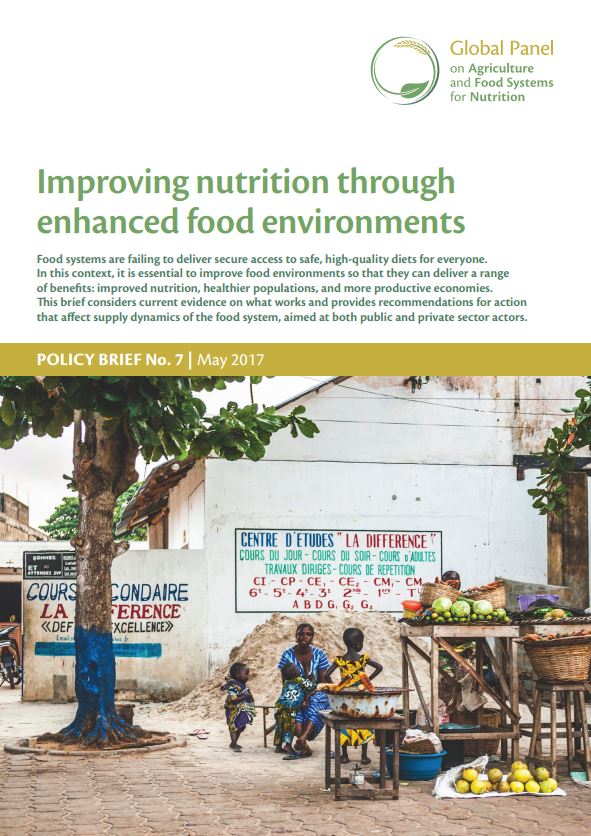
Improving nutrition through enhanced food environments - Global Panel Policy Brief No. 7
10/05/2017 - Today’s food systems are failing to drive improvements in nutrition. More than two billion people suffer from a serious lack of vitamins and minerals, and over 200 million children are stunted [...]
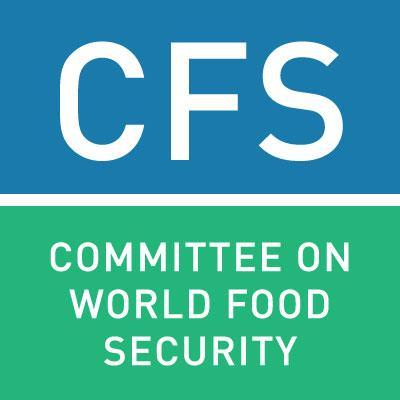
CFS-UNSCN Intersessional events on Nutrition
09/05/2017 - Investments for Healthy Food Systems Tuesday, 9 May 2017, 09:30 – 17:00, Red Room, FAO HQ, Rome and via webcast. The event increased common understanding about how policies and investment [...]

Guidelines on assessing biodiverse foods in dietary surveys
13/03/2017 - Biodiversity is critical to the availability of nutrients in a diversified diet that supports health and well-being, as well as to the sustainability of the natural resource base upon which food [...]
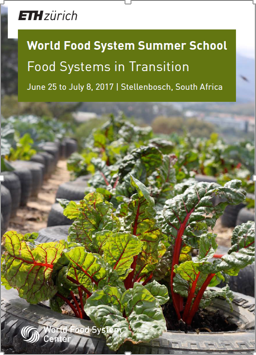
Call for Applications - World Food System Summer School “Food Systems in Transition”
13/01/2017 - The ETH Zurich World Food System Center is pleased to announce the call for applications for this year’s: World Food System Summer School “Food Systems in Transition” to be [...]

Dr Hilal Elver, UN Special Rapporteur on the Right to Food: Report A/71/282
01/09/2016 - The Report A/71/282, submitted pursuant to General Assembly resolution 70/154, is dedicated to reiterating the importance of a rights-based approach to “adequate food”, that is, nutritious [...]
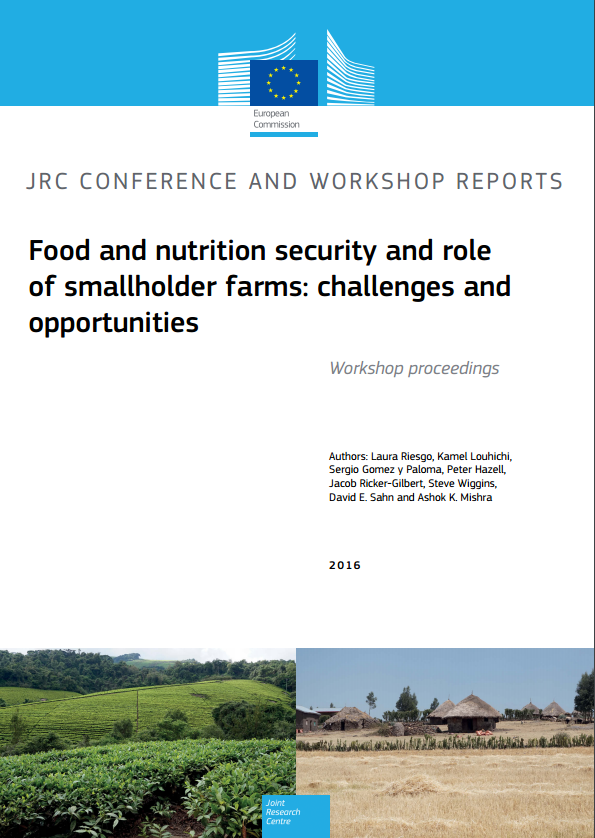
Food and nutrition security and role of smallholder farms - challenges and opportunities
01/08/2016 - Enhancing smallholders’ production capacities and their economic and social resilience may have a positive impact on food security and nutrition at different levels. Given the importance of [...]
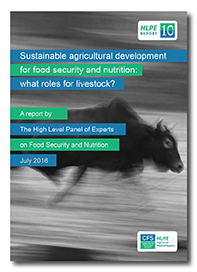
HLPE Report on Sustainable Agriculture Development for Food Security and Nutrition: What Roles for Livestock?
01/07/2016 - Agricultural development plays a major role in improving FSN: by increasing the quantity and diversity of food; as a driver of economic transformation; and, because agriculture is the main source of [...]
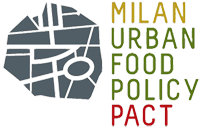
Milan Urban Food Policy Pact
01/10/2015 - Cities host over half the world’s population and have a strategic role to play in developing sustainable food systems and promoting healthy diets. While every city is different, they are all [...]





